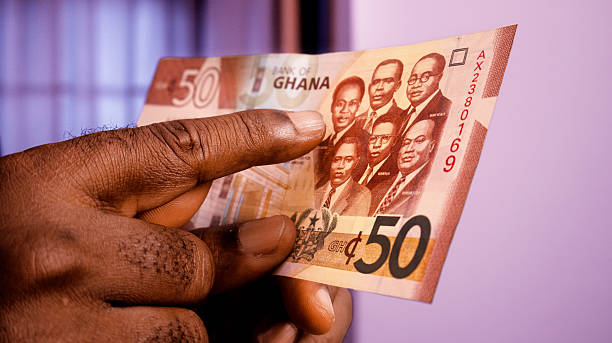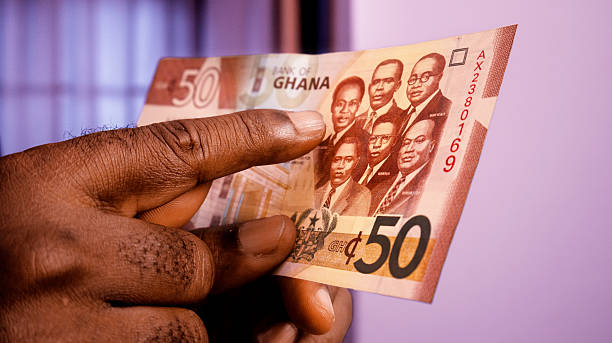
Importers in Ghana have raised a concern: they are unable to get dollars from the banks and are increasingly forced to turn to the black market, where rates are far higher than the Bank of Ghana’s quoted interbank rate of around GH¢10.30 to the dollar.
This reflects a growing disconnect between official data and economic reality.
Traders who rely on access to forex for routine operations are finding themselves locked out of the formal banking window. Spare parts dealers at Abossey Okai are feeling the squeeze too.
Even though the cedi has gained ground in recent months, they report little reduction in import duties. On the contrary, they argue that the exchange rate used by Customs to calculate duties appears to be out of step with the official rate.
Traders who were told to expect relief from the cedi’s recovery are instead contending with inflated charges and inconsistent policy signals.
But why does this mismatch persist? One key reason is that the Bank of Ghana is deliberately keeping the interbank rate low in order to signal currency strength.
In doing so, it hopes to manage expectations, shore up investor confidence, and present the image of macroeconomic stability.
But this approach creates a fundamental distortion: the price of the cedi is being managed, not discovered through real market activity.
The interbank market is no longer truly reflective of demand and supply.
It is tightly watched by the BoG, and banks conduct only light trades at the official rate, trades that do not represent real volumes or real pressure.
Because of this, commercial banks are reluctant to sell dollars at the official rate.
The rate underprices the dollar relative to what the market is willing to pay, meaning banks would take losses if they sold freely.
This has led to rationing in the formal FX market and a shift of supply toward informal channels.
A two-tier FX system has emerged: an official price that looks good on paper and a real price that importers and traders actually pay, often GH¢11.50 or higher.
This not only pushes businesses into grey markets but also feeds speculation.
Yet, these distortions are merely symptoms of a deeper issue: Ghana’s economic fundamentals remain weak.
To build a truly stable cedi, Ghana must improve its structural competitiveness.
Bright Simmons outlines several areas of reform:
Boost Economic Competitiveness: A strong currency is backed by a strong economy. That means increasing productivity and producing value-added goods and services the world wants. Ghana must invest in mechanized agriculture and smart industrialization, modern infrastructure, skills development, technology transfer, and innovation to move up the value chain. Ghana’s exports remain dominated (over 80%) by unprocessed commodities. Without structural transformation, Ghana will continue to export raw goods and import everything else, a model that locks us into long-term currency weakness.
Improve the Trade Balance Smartly: The goal is not to stop imports but to import smarter. There must be prioritization of capital goods and intermediates that support domestic production, support domestic firms to replace low-value consumer imports, diversify export earnings from raw cocoa and gold to processed goods and tradable services. Trade surpluses from a healthy, diversified base are what give currencies real strength.
Make Industrial Policy Transparent and Accountable: Ghana’s industrial transformation agenda cannot succeed in secrecy. Bright’s review of EXIM Bank’s support to firms like Darko Farms and Ekumfi Juice shows that millions have been spent with little to show and no data to explain what worked and what didn’t. Publish program performance data, create feedback loops to adapt and improve and encourage independent scrutiny from think tanks, academia, and the public. Without learning and transparency, we keep recycling the same broken tools under new names with the same disappointing outcomes.
As Bright Simons describes, citizens often demand aggregate outcomes like “fix the cedi,” but ignore the processes needed to achieve them. Politicians then pursue shortcuts to win public approval, instead of committing to long-term reforms.
This fracture leads to policy decisions that look good temporarily but collapse under scrutiny.
Until these structural reforms take hold, Ghana’s currency will remain vulnerable to swings in sentiment and global prices.
Businesses will continue to face dollar scarcity, misaligned duties, and an FX regime that tells one story in press briefings and another at the bank counter.
The goal should not be to “fix the cedi” in headlines. It should be to build an economy where the cedi is strong because the fundamentals say so.
DISCLAIMER: The Views, Comments, Opinions, Contributions and Statements made by Readers and Contributors on this platform do not necessarily represent the views or policy of Multimedia Group Limited.
DISCLAIMER: The Views, Comments, Opinions, Contributions and Statements made by Readers and Contributors on this platform do not necessarily represent the views or policy of Multimedia Group Limited.
- President Commissions 36.5 Million Dollars Hospital In The Tain District
- You Will Not Go Free For Killing An Hard Working MP – Akufo-Addo To MP’s Killer
- I Will Lead You To Victory – Ato Forson Assures NDC Supporters
Visit Our Social Media for More




